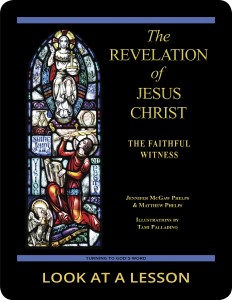demonic possession
 The Gospels make frequent mention of demonic possession, but they pose an interesting linguistic difficulty because the Greeks had an entirely different view of such possession than that held by Christians today. In the Gospel According to Matthew 8:14–22 (NABRE), we encounter Jesus healing people who are possessed by demons.
The Gospels make frequent mention of demonic possession, but they pose an interesting linguistic difficulty because the Greeks had an entirely different view of such possession than that held by Christians today. In the Gospel According to Matthew 8:14–22 (NABRE), we encounter Jesus healing people who are possessed by demons.
The Greek word for demon is δαίμων (daimon). Many Greek lexicons define daimon as a god or goddess, though in Greek mythology such daimones (plural of daimon) are incorporeal, nature spirits that are not perceived either as evil or as good. This is not unlike the way we view ghosts in our culture. Even in the Septuagint, daimones are less-than-divine natural spirits, though many of these contexts tend to suggest idolatry and foreign gods.
New Testament use of the word daimon forever changed its meaning in subsequent literature and is responsible for how we view demons in our Christian world today. In the New Testament, daimones are unambiguously evil spirits that possess people, a view consistent with the Judeo-Christian worldview. How do you think demons are present in our world today?
Possession implies being taken over by such a demon or spirit. In the Greek view, such possession even could be considered deification. Why do you think it is that Christianity and Judaism tend to take a less favorable view of such possession?
related topics: Evil One; Satan & Beelzebub
you also may like our study of the book of Revelation
 The Revelation of Jesus Christ: The Faithful Witness, a 23-lesson Catholic Bible study with an imprimatur, examines ways in which our traditional Christian view of heaven is built on Hebrew apocalyptic visions recorded in the Old Testament. This recently revised study includes maps and additional commentary and takes a close look at the role of the prophets in present-day Christianity. Illustrations by Tami Palladino depict the often-misunderstood images in the book of Revelation. Click on the book’s cover to view a sample lesson.
The Revelation of Jesus Christ: The Faithful Witness, a 23-lesson Catholic Bible study with an imprimatur, examines ways in which our traditional Christian view of heaven is built on Hebrew apocalyptic visions recorded in the Old Testament. This recently revised study includes maps and additional commentary and takes a close look at the role of the prophets in present-day Christianity. Illustrations by Tami Palladino depict the often-misunderstood images in the book of Revelation. Click on the book’s cover to view a sample lesson.
 Click on the picture of the statue of Moses with horns (above) to learn more about Lost in Translation. A new entry is archived each Monday. Contact us to receive Lost in Translation by email every week. You may use any of the contact links on our website to ask Matthew a question.
Click on the picture of the statue of Moses with horns (above) to learn more about Lost in Translation. A new entry is archived each Monday. Contact us to receive Lost in Translation by email every week. You may use any of the contact links on our website to ask Matthew a question.
